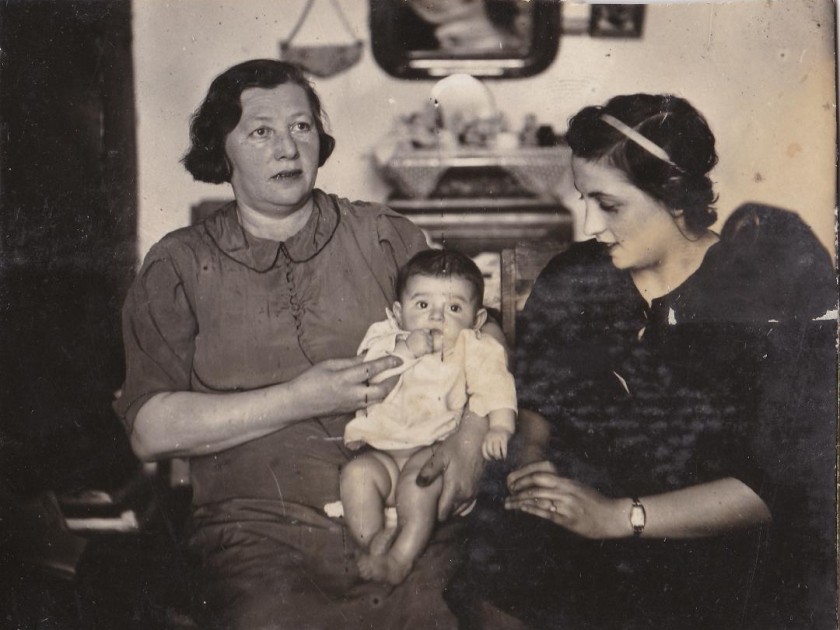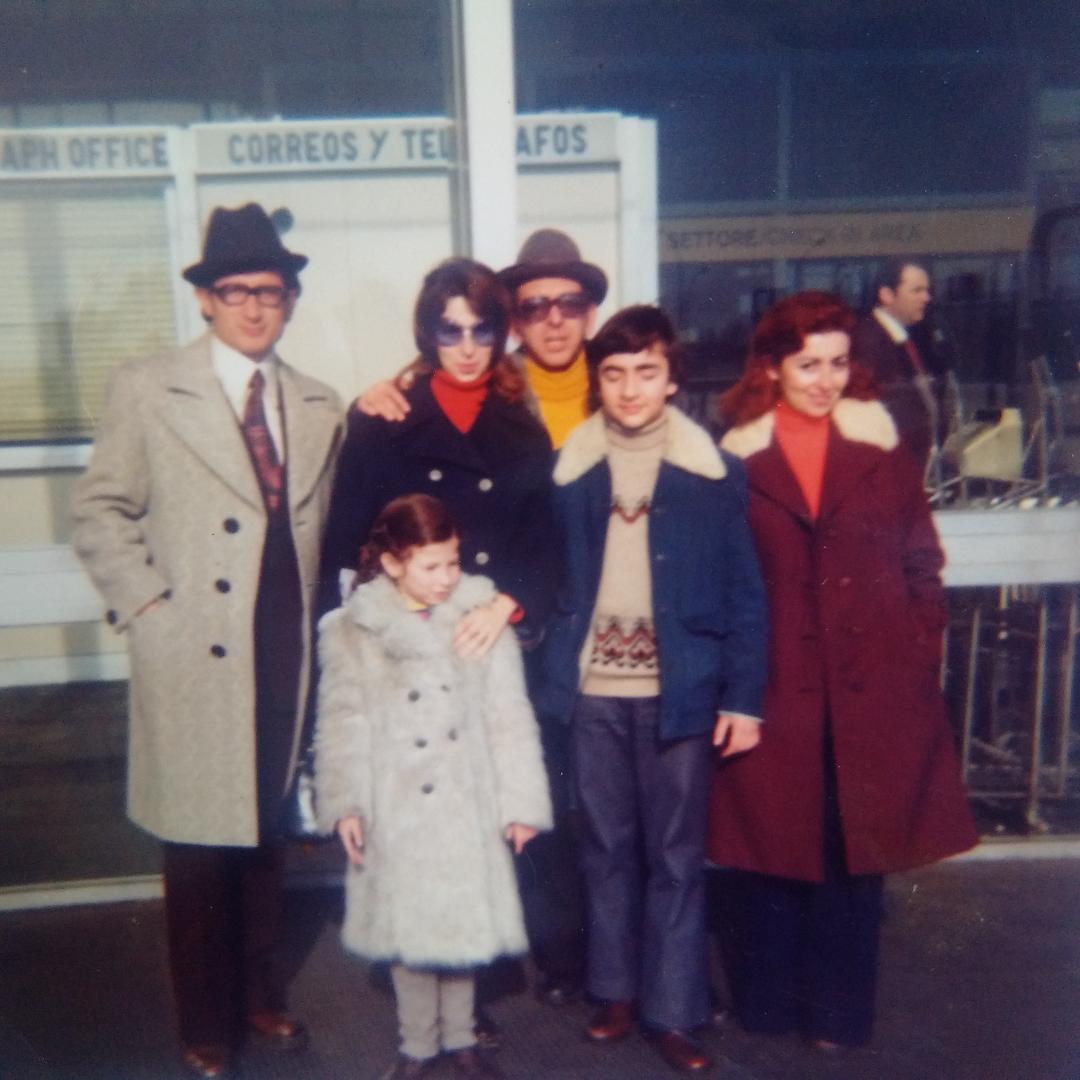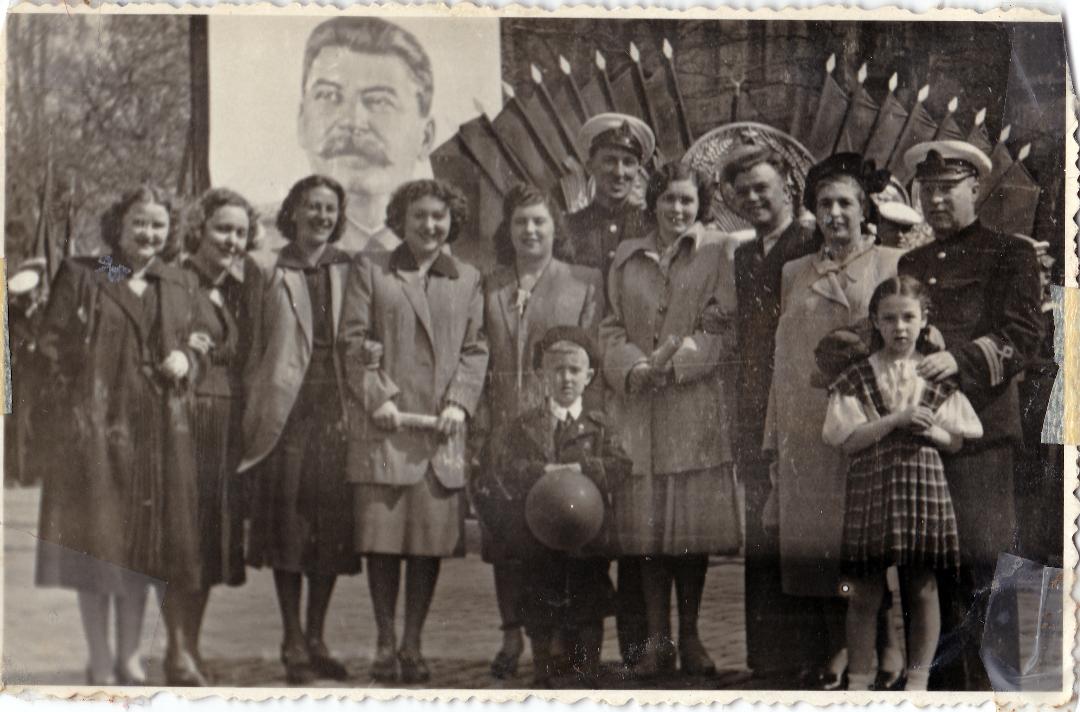
Three generations of women in the USSR: the author’s aunt, Janna; grandmother, Khanna; and great-grandmother, Feyga, in 1941. Courtesy of the author
Write what you know. Isn’t that what all aspiring writers are told?
Well, when I was first starting out as a writer, here’s what I knew: I knew what it was like to be a Soviet Jewish immigrant. I knew what it was like to grow up as an outsider in America. I knew what it was like to navigate two cultures without ever feeling like I completely belonged in either of them.
But this was the early 1990s, and what I knew was not what readers wanted to read. Or, at least, it wasn’t what publishers wanted to publish.
My first published book was a romance novel set in England during the Regency period. About as far away from a Soviet Jewish immigrant experience as possible. And yet, I still used the “write what you know” maxim. I made one of the characters a Jew hiding her heritage, navigating two cultures without ever feeling like she completely belonged in either one.
The Fictitious Marquis was published by Avon in 1995. Twenty-five years later, the Romance Writers of America pronounced it a Trailblazer, the “first own voices Jewish historical.” Who knew? I certainly didn’t!
In 2002, in the wake of the Olympic figure skating cheating scandal, I once again turned to what I knew. Having worked as a television researcher for ABC, NBC, and TNT, I wrote a series of figure skating mysteries set behind the scenes of various skating competitions. Our heroine is a young, Jewish female researcher. But, American born. The two cultures she navigates are the reality of figure skating, and the reality of otherwise sane people.
It wasn’t that I didn’t try to pitch stories that drew more from my own background. In fact, while working at the 1998 Olympic Games in Nagano, Japan, I decompressed from the stress of live television production by writing the outline of a novel that would take place in the USSR as Joseph Stalin was deporting entire villages of land-owning kulaks to Siberia — and of the Jewish family that accidently got swept up along with them.
The feedback I received from editors, however, was, “No one’s interested in Russia. Russia just doesn’t sell.”

The author’s family at the airport in Rome on their way to America in January of 1977. Courtesy of the author
It wasn’t until 2017 that my agent said to me, “You know, Russia is really hot right now!”
You don’t say …
The story I first developed at the 1988 Olympics eventually became Part I of The Nesting Dolls. I decided to move it forward a decade, from the dekulakization of 1929 – 1933 to Stalin’s Great Terror, which began in 1936. During this time, even the act of speaking Yiddish was dangerous; someone might mistake it for German and turn you in as an enemy of the people. The accusation was enough to sentence over a million men, women, and children to a frozen wasteland.
The reason I ultimately shifted the timeframe was that I wanted to make the characters slightly younger. Their tale would be only one piece of the entire narrative.
While I grew up hearing family stories of oppression and starvation during the Stalin and World War II era, they weren’t my stories. Mine were more modern. They were of immigration and the immigrant experience.
While I grew up hearing family stories of oppression and starvation during the Stalin and World War II era, they weren’t my stories. Mine were more modern. They were of immigration and the immigrant experience. They were about starting Jewish day school in the middle of second grade speaking neither English nor Hebrew. They were about learning how to be a “real American” by watching television. (Tip: Real Americans live in houses — not apartments — all of which have a bannister to slide down.) They were about walking the fine line between respecting your parents’ well-earned fears, and building an independent life beyond them.
I would write my story, too. In Part III of The Nesting Dolls.
But I needed to connect the 1930s to the 2000s. Enter the 1970s.
I lived in the USSR during the 1970s, but I was a child. My parents were the ones who truly experienced Brezhnev’s Great Stagnation, the Cold War, and the Jewish refusenik movement. And it was my parents’ and other relatives’ memories of the decade that became the basis for Part II of The Nesting Dolls.

A May Day celebration from 1954. The author’s mother is the girl in the checkered skirt, her father wears a military uniform behind her. Courtesy of the author
Russia might have suddenly become “hot.” But I wasn’t interested in telling a traditional Russian story. I’d never felt a connection either with the Anna Karenina set, with their fur muffs and their midnight troika rides, or with the gallant revolutionaries who overthrew the tsar in order to bring socialism to the huddled masses. I knew both parties would have killed me eventually.
My Russia, my USSR, is one where Jews suffered under the tsars, then suffered under the Communists — even if my great-grandfather did once writer a letter to Stalin (in Yiddish, no less) thanking him for granting his son the opportunity to get an education, something he couldn’t imagine a poor Jewish boy from a no-name village receiving in the tsarist empire. My Russia is one that Jews left to make their way to America, unsure of what they’d find there, but convinced that even if they failed to make a better life for themselves, their children would succeed.
That was the story I knew. That was the story I wrote. That’s the story of The Nesting Dolls.
Alina Adams is the NYT bestselling author of soap opera tie-ins, figure skating mysteries and romance novels. Her Regency romance, The Fictitious Marquis was named a first Jewish #OwnVoices Historical by The Romance Writers of America. Her Soviet-set historical fiction includes The Nesting Dolls, My Mother’s Secret: A Novel of the Jewish Autonomous Region, and the May 2025 Go On Pretending. More at: www.AlinaAdams.com.